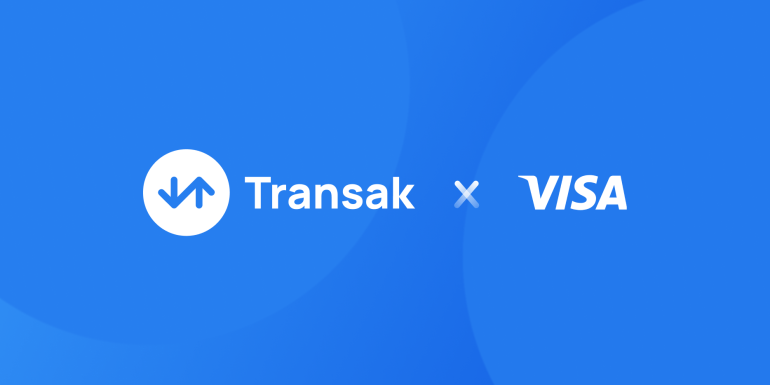
The Pan-African Crypto: Could a Blockchain-Based Currency Unite the Continent?
As Africa moves into 2024 with a promising GDP growth forecast of 3.5%, up from 3.1% in 2023, the continent faces a key moment in its economic progress.
Despite global headwinds, this growth trajectory signals Africa’s resilience and untapped potential. Yet beneath these encouraging numbers lies challenges that demand innovative solutions.
Consider this: while digital transformation sweeps across the globe, 57% of Africa’s population remains unbanked, cut off from basic financial services that many take for granted.
This financial exclusion persists even as the African Continental Free Trade Area (AfCFTA) promises to boost intra-African trade by 0.8% in the coming years.
The disconnect between economic ambition and financial infrastructure becomes even more striking when we examine the continent’s pressing challenges.
Food security presents one of the most urgent concerns, with 60% of Africa’s population grappling with moderate to severe food insecurity – more than double the global average of 29.6%.
Meanwhile, the specter of debt distress looms large, with over 53% of IDA-eligible African countries either at high risk or already struggling under its weight.
As traditional financial systems strain under the weight of cross-border inefficiencies and mounting challenges, could a blockchain-based solution offer the key to unlocking Africa’s full economic potential? These challenges, while daunting, may find an unexpected ally in blockchain technology.
As digital currencies reshape global finance, a Pan-African cryptocurrency emerges as a compelling solution to age-old challenges of cross-border trade and economic integration.
This digital currency, built on blockchain technology, could bridge the gaps between Africa’s 54 nations more effectively than previous attempts at monetary union.
Businesses face significant hurdles in regional with over 40 different currencies across the continent, painting a complex picture of the current state of African currencies.
The cost of currency conversion alone eats into profits, while volatile exchange rates create uncertainty. Yet, blockchain in Africa is already showing promising signs of transformation.
Dr. Njuguna Ndung’u, former Governor of the Central Bank of Kenya reiterated “A Pan-African cryptocurrency could eliminate the $5 billion spent annually on currency conversion fees within the continent. This money could instead fuel economic growth and development.”
Success stories from existing digital payment systems demonstrate Africa’s readiness for such innovation. M-PESA in Kenya processes over 50% of the country’s GDP through mobile transactions.
Nigeria’s eNaira, Africa’s first central bank digital currency (CBDC), has facilitated transactions worth billions since its launch in 2021.
These achievements highlight a salient point: the future of money in Africa lies in digital solutions. A unified digital currency could amplify these successes across the entire continent.
The Benefits of Unity
A Pan-African cryptocurrency would offer several key advantages. First, it would reduce transaction costs for cross-border trade.
Currently, sending money between African countries often requires conversion to dollars first, creating unnecessary expenses and delays.
“When we launched our cross-border payment platform in Zimbabwe, transaction costs dropped by 90%,” explains Faith Mukwende, CEO of BitPesa. “A continent-wide cryptocurrency would replicate these savings across all African nations.”
Second, it would strengthen the African crypto market and boost regional trade. The African Continental Free Trade Area (AfCFTA) aims to increase intra-African trade by 33% by 2027. A common digital currency would accelerate this goal by eliminating currency barriers.
Technical Infrastructure and Innovation
The technological foundation for this initiative already exists. Countries like Rwanda and Ghana have invested heavily in digital infrastructure.
Rwanda’s nationwide 4G coverage reaches 96% of its population, while Ghana’s mobile money interoperability system processes millions of transactions daily.
“We’re not starting from scratch,” notes Dr. Bitange Ndemo, former Permanent Secretary in Kenya’s Ministry of Information. “The African crypto market has matured significantly. We have the expertise and infrastructure to implement a continental digital currency.”
Overcoming Challenges
However, significant hurdles remain. Cryptocurrency regulation in Africa varies widely between countries.
While nations like South Africa have embraced crypto trading, others maintain restrictive policies. Harmonizing these regulations would require unprecedented cooperation between African governments.
Political challenges also loom large. Previous attempts at monetary union, like the East African Monetary Union, faced delays due to political disagreements.
A digital currency would need strong political backing and clear governance structures.
“The key is to start small,” suggests Professor Ndubuisi Ekekwe of the African Institution of Technology. “We can begin with regional blockchain initiatives and gradually expand to a continental scale.”
Technical challenges include:
- Ensuring reliable internet access across the continent
- Building robust security systems
- Creating user-friendly interfaces for widespread adoption
- Maintaining system stability during peak usage
Learning from Existing Initiatives
The West African CFA franc offers valuable lessons. This shared currency among 14 countries shows both the benefits and challenges of monetary union.
While it facilitates regional trade, its tie to the euro limits monetary policy flexibility.
Similarly, the Southern African Development Community (SADC) has long pursued monetary union.
Their experience highlights the importance of economic convergence before implementing a shared currency.
The Path Forward
Success requires a phased approach. The first step involves strengthening regional payment systems and cryptocurrency regulations.
Countries like Kenya, Nigeria, and South Africa could lead pilot programs, demonstrating the viability of cross-border digital transactions.
“We need to build trust through small wins,” says Yele Bademosi, founder of Bundle Africa. “Show people how blockchain can make their daily transactions easier and cheaper.”
Education also plays a crucial role. Many Africans still lack awareness of digital currencies. Public education campaigns and user-friendly applications would help drive adoption.
The Road Ahead
The concept of a Pan-African cryptocurrency represents more than just technological innovation – it symbolizes economic independence and unity. While challenges exist, the potential benefits make this goal worth pursuing.
African economies become increasingly digital with the maturity of blockchain technology, and the foundation for a unified digital currency grows stronger.
With careful planning, strong political will, and continued technological advancement, a Pan-African cryptocurrency could transform from vision to reality.
The journey toward this goal might be complex, but each step forward brings Africa closer to true economic integration. As more countries embrace digital currencies and blockchain technology, the dream of a unified African digital currency becomes increasingly achievable.


